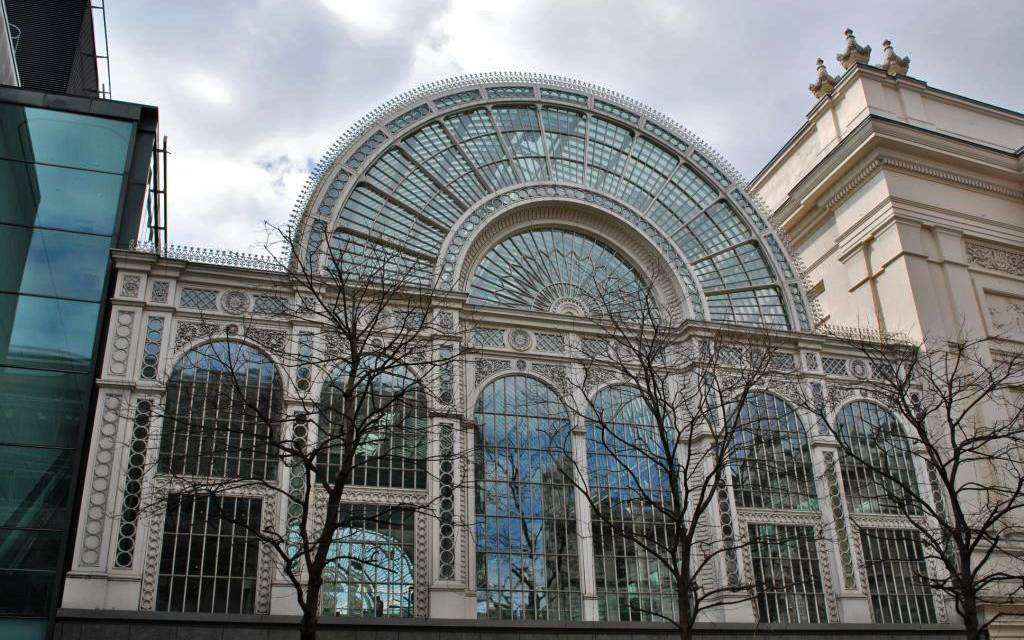There’s no doubt that Covid-19 has forced us all to be a bit more creative. With venues across the country – and indeed much of the world – closed for the foreseeable future, opera companies and performers are turning to technology to share their work.
Singers, musicians and conductors have been filming themselves performing using their smartphones and sharing the videos online. Companies and opera houses are making available whole productions for free via platforms like YouTube.
This potentially opens up opera – and a whole host of other artforms – to a previously untapped audience that could reach millions, while also possibly providing a new revenue stream for everyone from individual singers and musicians to world-renowned companies and opera houses.
Performers no longer have to be in the same room to perform ‘together’. They can film themselves anywhere and share the video online. Swedish conductor Tobias Ringborg recorded himself conducting the opening of Strauss’s tone poem ‘Also Sprach Zarathustra’ (1896) in a deserted church in Stockholm. Forty members of the Orchestra of Opera North used the resulting footage to perform their own parts from home. The separate pieces were then put together for a unique online concert.
This could have all kinds of interesting applications in a post-coronavirus world. A soprano in New York could perform a favourite aria with an orchestra in London and a conductor in Venice. Whole concerts could be performed in this way and then uploaded to YouTube, where it might be seen by an unprecedented number of people.
The Royal Opera House and other venues already stream performances to cinemas, but these are one-off events. Right now, though, several opera houses, as well as theatre companies, dance troupes, orchestras and more, are putting performances on YouTube for all to see. These are free, but often only for a limited time. After this, they can be bought or rented for a small fee. Some of these are donating proceeds to charity, like this all-star production of Andrew Lloyd Webber’s Les Miserables, for which £5 of every £9.99 subscription will be shared among the charity Acting for Others, the Musicians’ Union Coronavirus Hardship Fund and Captain Tom Moore’s Walk for the NHS fund.
This has huge potential for companies and performers. The Royal Opera House, for example, could upload full-length performances of its operas which viewers could buy or rent for a tenner – a fraction of the cost of a ticket to the opera and open to anyone in the world with a laptop, internet access and a spare £10. There’s also ad revenue to consider.
Individual performers could do the same. Who among us wouldn’t pay £10 to watch world-renowned tenor Jonas Kaufmann sing in the comfort of our own homes? This can be done with basic recording technology, a smartphone and an internet connection. It’s a new source of income, not only in these times when getting together in a concert hall isn’t possible but also once lockdown has ended.
Opera is often – rightly – criticised for being costly. A top-price ticket to the Royal Opera House is £250, and that’s before travel, food, drink, something to wear and other associated costs. But most of us can afford a tenner for a production that we can then keep and rewatch at our own leisure. It does require a laptop or TV with access to YouTube and internet connection, but even with this caveat, it opens up opera to a new and much wider audience – everyone benefits.
It’s not just opera that could learn from this either. Dutch violinist and conductor Andre Rieu’s concerts with his Johann Strauss Orchestra are simply beautiful and hugely popular. Again, these are streamed to cinemas and he’s currently sharing full concerts on his YouTube channel. But what about when things are back to normal?
We can’t all travel to The Netherlands or afford the price of a ticket. I would love to take my mum to one of Rieu’s Maastricht concerts, but the logistics and cost make it impossible. Putting these performances on YouTube for viewers to buy for a small fee would make them available to a huge number of people and make money for the entire orchestra.
It’s easy to speculate about how coronavirus is going to change everything, and I know I’m sick of the ‘nothing will be the same after this’ narrative. But this doesn’t mean we can’t all look to some of the things we’re doing in a virtual world – workouts, meetings, concerts – and see how this might apply once the world has returned to some semblance of normality.
The performing arts are suffering right now and will continue to do so even after lockdown regulations have been loosened. How long will it be, after all, before we feel comfortable gathering in an auditorium packed with hundreds of strangers? So alternative ways of experiencing opera and other artforms have suddenly and drastically become incredibly important and will remain so for some time. And there’s definitely a lesson to be learned from this to take forward.
Useful links
• Jonas Kaufmann on YouTube
• OperaNorth on YouTube
• Royal Opera House on YouTube
• Andre Rieu on YouTube
• Les Mis to download
Image
With performances temporarily suspended and the theatre shut, the Royal Opera House is looking to technology to share its productions (Elisa.rolle, Wikimedia Commons).

